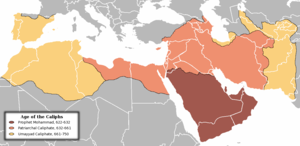This article needs additional citations for verification .(June 2012) |
| Millennium: | 1st millennium |
|---|---|
| Centuries: | |
| Decades: | |
| Years: | |
| 710 by topic |
|---|
| Leaders |
| Categories |
| Gregorian calendar | 710 DCCX |
| Ab urbe condita | 1463 |
| Armenian calendar | 159 ԹՎ ՃԾԹ |
| Assyrian calendar | 5460 |
| Balinese saka calendar | 631–632 |
| Bengali calendar | 116–117 |
| Berber calendar | 1660 |
| Buddhist calendar | 1254 |
| Burmese calendar | 72 |
| Byzantine calendar | 6218–6219 |
| Chinese calendar | 己酉年 (Earth Rooster) 3407 or 3200 — to — 庚戌年 (Metal Dog) 3408 or 3201 |
| Coptic calendar | 426–427 |
| Discordian calendar | 1876 |
| Ethiopian calendar | 702–703 |
| Hebrew calendar | 4470–4471 |
| Hindu calendars | |
| - Vikram Samvat | 766–767 |
| - Shaka Samvat | 631–632 |
| - Kali Yuga | 3810–3811 |
| Holocene calendar | 10710 |
| Iranian calendar | 88–89 |
| Islamic calendar | 91–92 |
| Japanese calendar | Wadō 3 (和銅3年) |
| Javanese calendar | 603–604 |
| Julian calendar | 710 DCCX |
| Korean calendar | 3043 |
| Minguo calendar | 1202 before ROC 民前1202年 |
| Nanakshahi calendar | −758 |
| Seleucid era | 1021/1022 AG |
| Thai solar calendar | 1252–1253 |
| Tibetan calendar | 阴土鸡年 (female Earth-Rooster) 836 or 455 or −317 — to — 阳金狗年 (male Iron-Dog) 837 or 456 or −316 |

Year 710 ( DCCX ) was a common year starting on Wednesday of the Julian calendar. The denomination 710 for this year has been used since the early medieval period, when the Anno Domini calendar era became the prevalent method in Europe for naming years.